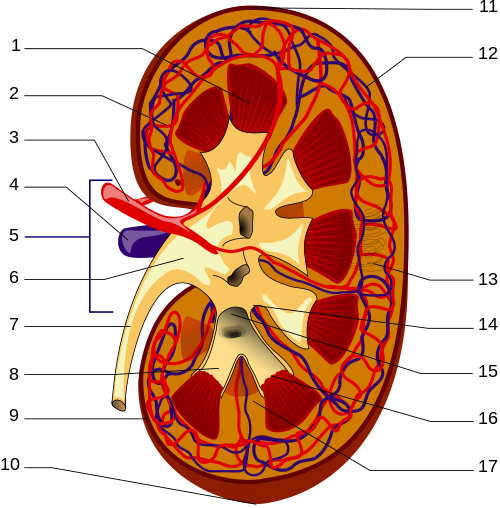
Photo from academic.microsoft.com
Background: Hypothesizing that statins may be useful as adjuvant treatment for renal anemia, we examined the association between statin prescription (Rx) and erythropoiesis-stimulating agent (ESA) hyporesponsiveness in Japanese hemodialysis (HD)… Click to show full abstract
Background: Hypothesizing that statins may be useful as adjuvant treatment for renal anemia, we examined the association between statin prescription (Rx) and erythropoiesis-stimulating agent (ESA) hyporesponsiveness in Japanese hemodialysis (HD) patients prescribed ESAs. Methods: We examined 3,602 patients in 60 HD facilities dialyzed 3 times/week for ≥4 months from the Japan Dialysis Outcomes and Practice Patterns Study phases 3-5 (2005-2015). Statin Rx was reported at the end of a 4-month interval (baseline) for each patient. ESA hyporesponsiveness in the subsequent 4 months was then defined as a binary indicator (mean hemoglobin [Hgb] level <10 g/dL and mean ESA dose >6,000 units/week) and separately as the ESA resistance index (ERI; mean ESA dose/[dry weight × mean Hgb]). We used adjusted logistic and linear regressions to evaluate the associations between statin Rx and ESA hyporesponsiveness. Results: At baseline, 16.2% of patients reported statin Rx; 12.8% were classified as having ESA hyporesponsiveness during 4 months of follow-up. Compared to patients without statin Rx, patients with statin Rx had lower odds of ESA hyporesponsiveness (OR 0.87; 95% CI 0.66-1.15). Similarly, the ERI was lower for those with statin Rx than without (ratio of means, 0.94; 95% CI 0.89-0.99) after adjustment for possible confounders. Conclusions: Our results suggest that statins may slightly reduce ESA hyporesponsiveness in HD patients. However, any causal inference is limited by the observational study design and unmeasured compliance with statin Rx.
Journal Title: American Journal of Nephrology
Year Published: 2017
Link to full text (if available)
Share on Social Media: Sign Up to like & get
recommendations!